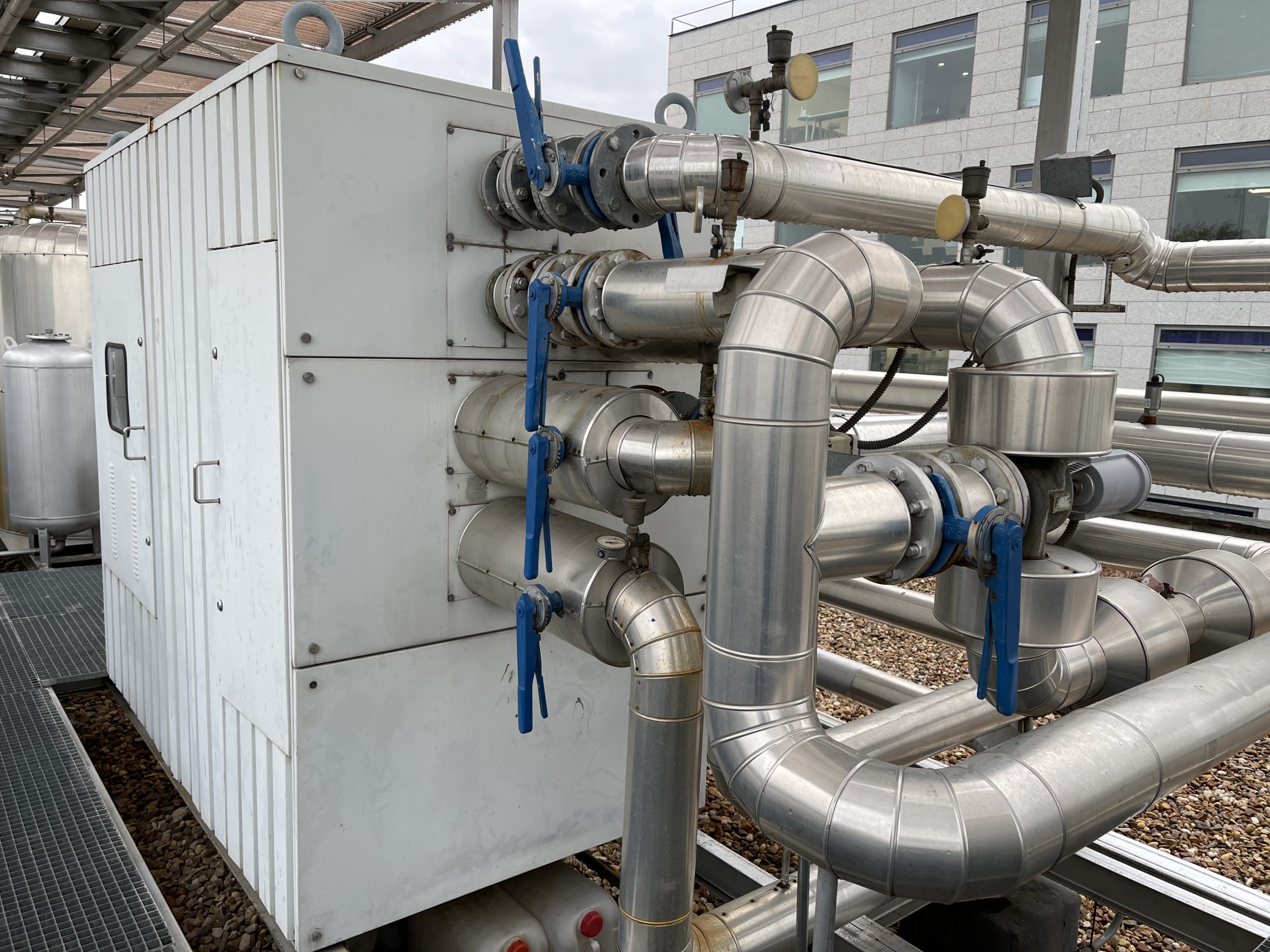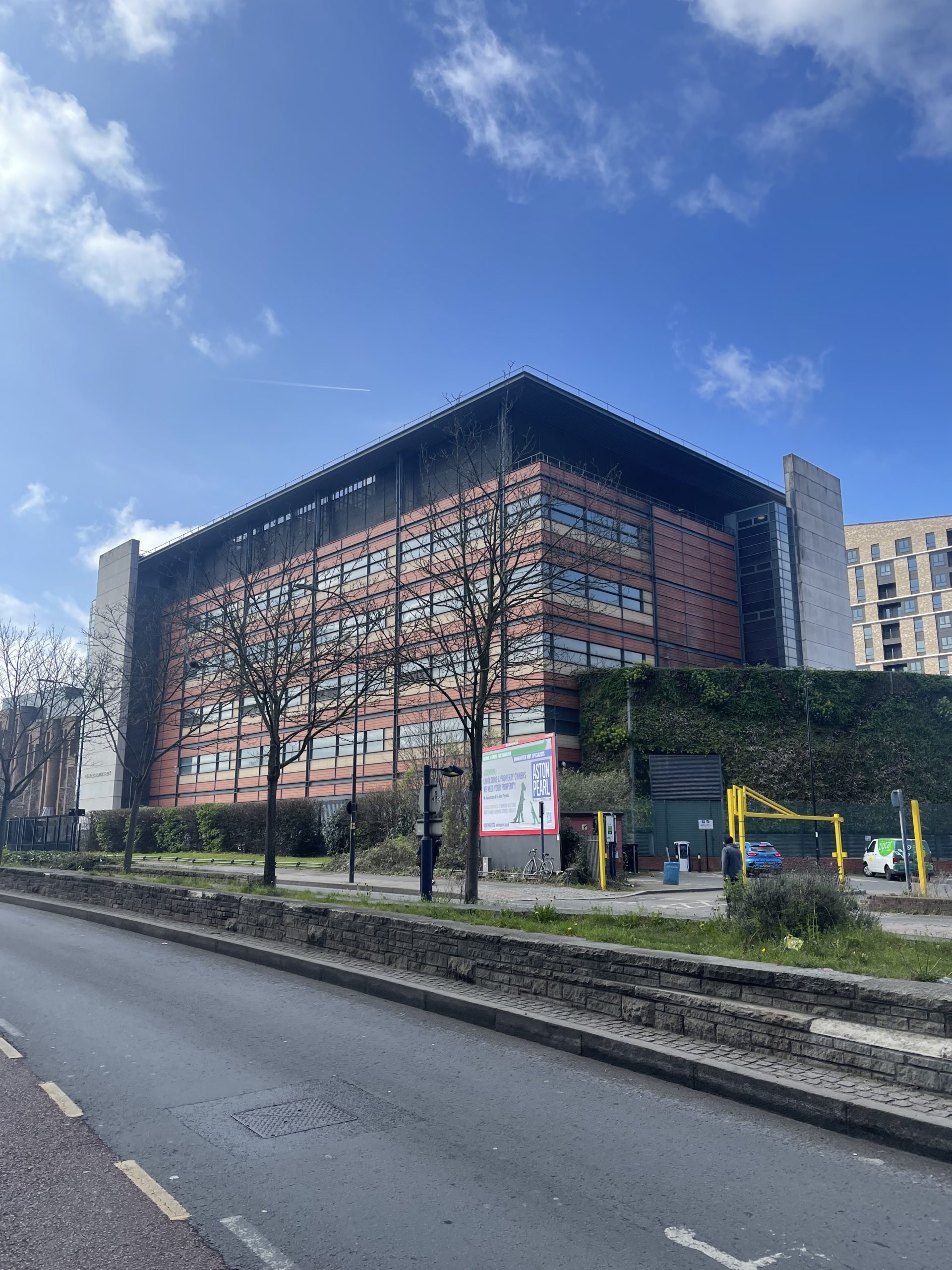Vamtec’s Role in Decarbonisation and Digital Innovation
The energy sector is undergoing a profound transformation, driven by the urgent need for decarbonisation and rapid technological advancements. However, a significant skills gap hinders progress, particularly in the adoption of renewable energy technologies, grid engineering, and advanced cooling systems like absorption chillers. At Vamtec, we are committed to closing this gap through specialised training, innovative hybrid cooling solutions, and cutting-edge digital strategies, ensuring sustainable and efficient energy systems for our clients. This article explores the skills gap, its implications for decarbonisation, and how Vamtec’s expertise, including our Web HMI and remote monitoring services, empowers industries to thrive in a net-zero future.
The Skills Gap: A Barrier to Energy Transition
The energy sector faces several challenges that exacerbate the skills gap:
- Technological Advancements: The rapid evolution of energy technologies, such as absorption chillers, industrial heat pumps, and renewable energy systems, demands specialised expertise. The current workforce often lacks the skills to operate and maintain these advanced systems effectively.
- Training and Education Shortcomings: Educational institutions struggle to keep pace with the sector’s evolving needs, particularly in providing hands-on training for modern energy systems and their maintenance requirements.
- Industry Perception and Attraction: The energy sector’s technical focus can deter younger workers, who may prefer industries perceived as more dynamic or aligned with sustainability values.
- Lack of Specialised Expertise: The transition to renewable energy and energy-efficient technologies requires proficiency in areas like grid engineering, energy storage, and hybrid cooling systems, where expertise is scarce.
These challenges are particularly critical in the context of decarbonisation, as industries must adopt low-carbon technologies like carbon capture, hydrogen, and electrification to meet net-zero targets by 2050. Without a skilled workforce, the deployment of these technologies risks delays, inefficiencies, and increased costs, undermining global climate goals.
Vamtec’s Solutions: Bridging the Skills Gap for Decarbonisation
Vamtec addresses the skills gap with targeted initiatives that align with decarbonisation objectives and empower industries to adopt sustainable practices:
- Specialised Training Programs: We offer bespoke training on absorption chillers, heat pumps, and hybrid cooling systems, equipping professionals with the skills to operate and maintain these technologies. Our programs also educate clients on system optimisation, reducing energy consumption and operational costs while supporting decarbonisation goals. For example, our training in Madrid, Spain, integrates solar-powered absorption chillers, enabling eco-friendly cooling with minimal carbon emissions.
- Hybrid Cooling Expertise: Vamtec’s hybrid cooling systems combine absorption chillers with heat pumps to optimise energy use and improve the coefficient of performance (COP). These solutions reduce reliance on fossil fuel-based cooling, supporting decarbonisation in industries like pharmaceuticals, refineries, and healthcare.
- Diagnostic Excellence: Using advanced tools like thermal imaging and chemical analysis, we diagnose issues such as internal corrosion in Lithium Bromide absorption chillers. This ensures system reliability, extends equipment lifespan, and minimises energy waste, contributing to sustainable operations.
Industry Case Studies: Decarbonisation in Action
Vamtec’s solutions have delivered measurable decarbonisation benefits across industries:
Madrid Solar Cooling Project:
By integrating solar vacuum collectors and photovoltaic cells with absorption chillers, Vamtec enabled a Spanish client to power cooling systems with renewable energy, reducing CO2 emissions by 30% compared to traditional systems. This project showcases how targeted expertise can drive decarbonisation in energy-intensive sectors.
UK Data Centre Project:
The UK Data Centre Project exemplifies how advanced energy technologies can deliver reliable, sustainable, and cost-effective solutions for modern data centres. By integrating a 1.5MW CHP unit with a 1MW hot water absorption chiller, the project achieves significant reductions in greenhouse gas emissions, enhances energy efficiency, and supports the UK’s journey toward Net Zero Operations. This initiative serves as a model for future data centres aiming to balance operational excellence with environmental responsibility.
Digital Strategy and Technological Advancements: Web HMI and Remote Monitoring
To enhance efficiency, sustainability, and decarbonisation, Vamtec leverages cutting-edge digital strategies through our Web HMI and remote monitoring services. Our Web HMI platform enables real-time performance monitoring and proactive maintenance of absorption chillers via a PLC device connected to onsite equipment. Our system ensures seamless data collection and alarm management, accessible through any standard web browser.
This digital solution addresses the skills gap in the energy sector by reducing reliance on on-site expertise. Remote troubleshooting and optimisation, managed by Vamtec’s specialists, allow facilities to operate complex systems like absorption chillers without extensive local training. For example, NHS Hospitals in the UK use our Web HMI to monitor chillers remotely, identifying inefficiencies and reducing downtime by 25%. This lowered energy consumption by optimising system performance, directly supporting decarbonisation by cutting greenhouse gas emissions.
By integrating IoT and advanced analytics, our remote monitoring enhances system reliability, aligning with Industry 4.0 principles. It enables predictive maintenance, preventing energy-intensive breakdowns and extending equipment lifespan, which reduces the carbon footprint of maintenance activities. For instance, our system supports low-carbon technologies like solar-powered absorption chillers, as demonstrated in our Madrid project, ensuring optimal operation for renewable energy systems. This data-driven approach empowers operators with actionable insights, bridging the skills gap by enabling less experienced staff to manage advanced systems effectively while contributing to net-zero goals.


